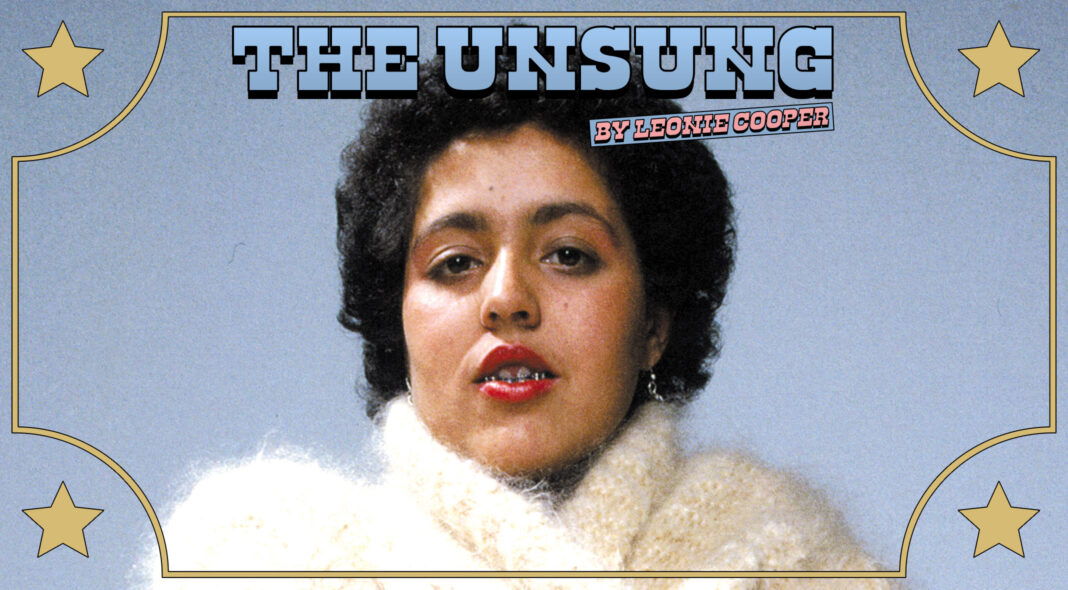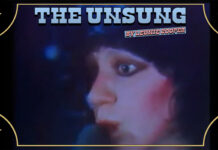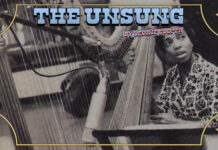Punk heralded the arrival of trailblazer upon trailblazer, but none were more groundbreaking than the young woman in a vintage twin set and strands of pearls who didn’t think of herself as a punk at all.
Born Marianne Elliott, her first single would come out under the name Mari Elliott, a perky reggae track called ‘Silly Billy’. But the singer would quickly rebrand herself after seeing the Sex Pistols play a gig on Hastings Pier. Taking her name from the Yellow Pages, the newly christened Poly Styrene put together X-Ray Spex, a power-pop hand grenade of a band with a female saxophone player, who flung themselves into the charts with songs about genetic engineering, consumerism and – with the anthemic ‘Oh Bondage! Up Yours’ – emancipation. While other prominent female punks like Jordan and Soo Catwoman strutted about in Vivienne Westwood’s S&M inspired outfits and fishnet tights, Poly was more likely to be covered up in brightly coloured, homemade versions of your gran’s Sunday best; all demure cardigans, long pencil skirts and the occasional army helmet.
With the National Front terrorising the streets of Great Britain, as a mixed-race woman, Poly Styrene’s arrival was even more powerful. Not only was she a woman in a scene dominated by male voices, but she was black and no stranger to the racist attacks and bullying that seemed to define the 1970s.
Poly Styrene died a decade ago, but interviewing her for The Guardian in 2007 remains a career highlight. I took the train down to St Leonard’s where she lived by the sea and met her over a cup of tea in the local branch of bookstore Borders. She had just turned 50 and was instantly recognisable, as well as friendly and extremely warm. After decades spent shunning her status as musical royalty after joining the Hare Krishna movement, she now remembered the past fondly. Well, some of it at least. It wasn’t long until our conversation turned to her status as one of the few female figureheads in punk. “I wasn’t aware that I faced any problems being a woman in the beginning but as time went on I realised that I was vulnerable, being surrounded by men all the time,” she explained. “I got remarks from the guys, sexual comments, and it’s not very comfortable. I remember one time I was at John Lydon’s house and someone was saying, ‘Just look at those lips’. It’s not nice to get that from a fellow musician.”
A new documentary I Am A Cliché looks at how Poly always stood apart from punk’s popular kids, one night hanging out with the DJ Don Letts and the Sex Pistols at their West London flat before disappearing to the bathroom unannounced to shave her head. The act was a defiant statement against being turned into a sex symbol and she revealed her home hair-do to fans and the press the very next day, on stage at the now legendary Rock Against Racism gig in Victoria Park, unwrapping a knitted turban and revealing her close-cropped skull.
The film also covers Poly’s unfairly maligned first solo effort, ‘Translucence’. Made after X-Ray Spex split, the 1980 album gracefully straddles Brit-folk, post-punk, lilting reggae and jazz-pop, with Poly’s distinct playground vocal bouncing across 12 slowly skanking tunes. Compared to the urgent wail that defined the music of X-Ray Spex, it was pretty chill but remains no less potent. It’s this side of Poly Styrene that’s perhaps the most overlooked of all – don’t let it stay that way.
Hear Poly Styrene’s influence in the music of:
Dream Wife
Shampoo
Bikini Kill
READ MORE: The Unsung is a weekly series. Get to know the stories of more musical heroes.







